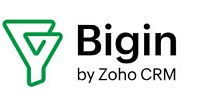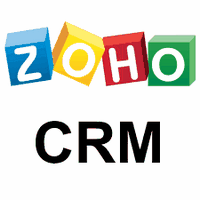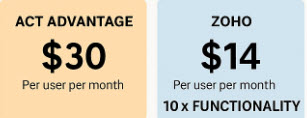Having written 10 books on CRM and contact management I’m often asked to compare the various products. These questions often come from new or prospective CRM users. For me, this is like asking which car is better: the Lexus or the Infiniti. No doubt Lexus owners prefer the Lexus while the Infiniti owners prefer the Infiniti. The best answer to this question is a simple one: choose the brand you’re most comfortable with.
I like to rank CRM products. Using Excel as a database is better than using a Rolodex system or sifting through mountains of business cards. Using Outlook gives you an added level or organization and provides you with a basic calendar. Outlook’s Business Contact Manager begins to integrate several business processes. I like ACT! because of its flexibility, ease of use and price. Once you’ve outgrown ACT! there are many options available to you; however, many ACT! users only scratch the surface of ACT!’s functionality.
In this article I rank ACT! users based on their experience with both CRM software and ACT!. You’ll notice that I do not take into consideration the actual years a user has spent working with ACT! but rather your true mastery of the software.
Level 1: The Apprentice: Focus on organization
Hands down, the majority of ACT! users are “Apprentices.” These folks are using ACT! as an electronic rolodex.
- Data entry is typically inconsistent. For example, a variety of abbreviations is used to record city information.
- They probably still have multiple databases and are duplicating their data entry.
- Apprentice users are still struggling to add structure to the ever-increasing amount of data in ACT! and have no idea how to tame the chaos.
- Apprentice users typically feel that they should be using more of ACT!’s functionality.
- Apprentice users often put the CRM decision making in the wrong hands. For example, an admin assistant or IT person determines the structure of the database rather than the company’s main decision maker.
The key benefit for the Apprentice user is organization. In general, the biggest obstacle to better contact management is the users themselves; the Apprentices know that they need to change their CRM implementation but they are afraid to make any changes.
Level 2: The Professional: Focus on Productivity
Becoming an ACT! professional is all about integrating your processes, increasing your productivity and increasing your profit margin.
- Professional users avoid duplicate entry by integrating their various software programs including Outlook, QuickBooks and even their smart phones to ACT!
- Professionals use ACT! for all facets of contact management; it is used equally for sales, marketing and customer service purposes.
- The database is universally accessible; a user can access his information from wherever his travels take him.
- If necessary, the database can be shared by a team of users.
The key here is knowing why to use functionality rather than just knowing how to use it. Your reward for raising your usage level to Professional will be the increase in productivity seen throughout your organization.
Level 3: The Expert: Focus on Profits
The key word here is processes. An Expert user of contact management is one whose software runs like a finely-tuned clock.
- There is a systematic approach to contacting prospects in order to determine those that are qualified leads.
- There is a pipeline in use to identify both qualified leads and existing customers.
The methodology used for qualifying leads is based on proven, successful strategies. - Your successes can be measured and, more importantly, be reproduced by both existing and new staff members.
- You have a system in place for identifying important customer milestones such as contract renewal dates.
- You reserve your calendar for meetings and appointments and don’t rely on it to remind you of critical milestones such as contract renewal dates.
- Groups, when used, are dynamic; contacts are placed in a group based on specific queries and not just a random selection.
25% of a typical database consists of “dead wood.” The Expert knows how to prevent contacts from “falling through the cracks.” More importantly, the Expert can quickly focus on the events that product the greatest profits.
Level 4: The Master: Focus on Growth
Very few database users – if any – achieve true Mastery of a database but there’s no harm in aiming for perfection. Database Masters notice improvements in their organization’s efficiency, productivity, and ultimately profits.
- You can easily monitor performance, and are continuously improving the system.
- You have the ability to forecast upcoming revenues.
- You can easily find – and resolve – problems such as customer service issues, lost leads or abandoned deals.
- You can use your data to create future strategies.
Those of you who truly become masters of your database will undoubtedly experience an increase in your company’s efficiency, productivity and profits. In addition, you will be able to document dramatic growth in your business. Customer retention will increase, your closing rate will improve and your lead generation efforts will be much more successful.



